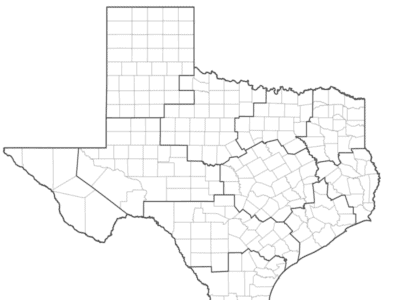AUSTIN, Texas — Texans who support victims of sexual assault have not always had access to the localized information they need to connect the survivors to services and resources in their area and across the state.
Now, new research from The University of Texas at Austin will enable survivors of sexual assault, professionals supporting them, and lawmakers to see the landscape of resources, service gaps and unmet needs across the state to improve the services that survivors of child and adult sexual assault receive throughout Texas.
The research was authorized by the bipartisan passage of House Bill 1590 and administered through the office of the governor’s Sexual Assault Survivors’ Task Force. It was conducted by researchers at the Institute on Domestic Violence & Sexual Assault (IDVSA) in the Steve Hicks School of Social Work, who developed and implemented a statewide survey to providers who serve survivors of sexual violence. More than 340 service providers participated in the survey, representing all 11 regions of Texas and 209 of the 254 counties.
“The intention of HB 1590 was to consider and improve upon efforts across the state to provide justice and support for survivors of sexual violence,” said state Rep. Donna Howard, who sponsored the bill. “The state needed to craft a thoughtful, survivor-centered plan for rooting out systemic problems preventing this and bringing to bear solutions needed to address those issues. This report by IDVSA, some of the most respected researchers in the country on these issues, is essential to this process. Now, we will have a baseline of service across the state and can hold ourselves accountable for improving how Texas treats survivors.”
UT Austin researchers found that survivors across the state and in every region of the state need more services than those currently available — including transitional housing for survivors leaving abusive relationships, transportation to get to services, and legal services for needed protections.
Other findings include:
- Survivors’ greatest unmet need is for mental health services. Survivors across Texas lack access to therapists, especially those with specialized trauma training or experience working with children.
- The COVID-19 pandemic has created widespread service disruption, exacerbating the need for additional resources. The lack of in-person contact between survivors and their service providers increases vulnerability, limits therapeutic modalities, and increases isolation.
- More shelters are needed that can provide services designed for survivors of human trafficking and non-intimate partner sexual assault survivors.
- More legal aid is needed, including attorneys on site at local nonprofits, representation in high-conflict child custody cases, and the need to reduce the long waiting lists for legal aid programs.
The researchers also developed the preliminary Inventory of Services List authorized by the new state law and delivered it to the governor’s Sexual Assault Survivors’ Task Force. Ultimately, this list will be used to create a comprehensive statewide service directory of resources for survivors that can be accessed online.
“We are always privileged to be a part of the statewide solution for solving crimes and meeting survivors’ needs,” said Noël Busch-Armendariz, director of IDVSA and the project’s co-investigator. “The collaboration between scientists, advocates such as the Texas Association Against Sexual Assault and the Children’s Advocacy Center of Texas, and lawmakers ensures that the research is scientifically rigorous, practical and useful to survivors across our state.”
IDVSA has worked hand in hand with the State of Texas to create a strong foundation of sexual assault crime research and knowledge. That work has established that sexual assault is a public health problem that affects 6.3 million Texans throughout their lives. This latest research is an essential component to getting people what they need where they need it, said Bruce Kellison, IDVSA’s co-director and principal investigator for this project.


